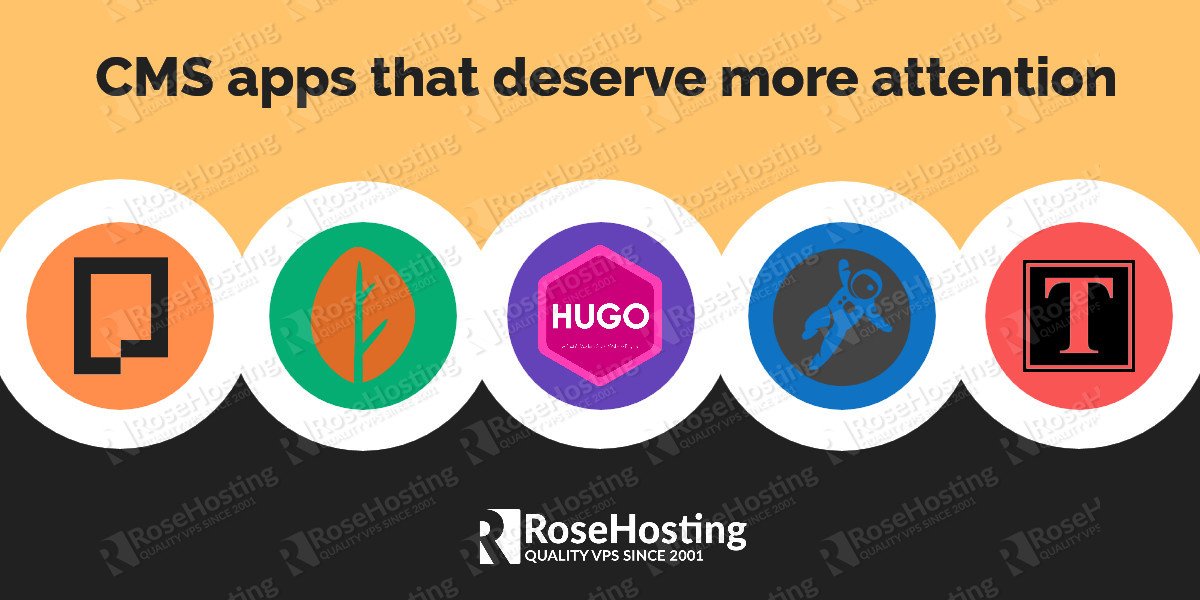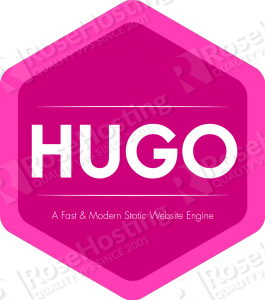Everybody knows about WordPress, Drupal and Joomla, although they are great and they are popular for a reason, there are quite a few other alternatives that you may have never heard of. Thousands of quality developers and designers work hard to create amazing masterpieces of applications. Most of them release their applications for free and they make them open source. The least we can do is spread the word so they can get the attention they well deserve. We’ve already listed a dozen CMS apps in our self-hosted alternatives post, but in this article, we’ll focus more on each CMS and its features. Here, 5 open source CMS apps will get the spotlight. The list is not ordered in any particular way:
Table of Contents
Grav
One of our favorites. Relatively new and unknown, this is one of the CMS applications that you can easily use as a blogging platform and as an alternative to WordPress.
Why use Grav:
- Flat-file, without a database, which means Grav will be blazing fast without any clutter. It also has a built-in caching system which makes the CMS even faster.
- Extensible – a lot of plugins to choose from, which you can install using their one-click installer.
- Community driven – built and supported by a community of amazing developers. You can always use their forums or GitHub repo to get help for your Grav installation. You can also get hosting from us and our Linux admins will help you with installing, configuring, optimizing, and securing your Grav server for free.
- Uses markdown. You can use your favorite markdown editor and start building your website with Grav.
- Easy backups – since it uses files only, backing up has never been easier.
DOWNLOAD GRAV GET HOSTING FOR GRAV
Hugo
Built with Go, Hugo is a great fit for CMS needs. Even though Hugo is a static site generator, you can easily use it as a CMS because of its easy of use and extensibility.
Why use Hugo:
- Very easy to install. Doesn’t depend on administrative privileges, databases, runtimes, interpreters or external libraries.
- Speed & performance – Hugo is built so it can run everywhere with an amazing build time in milliseconds.
- It’s flexible – you can group your content with indexes, you can define your own metadata in YAML, TOML or JSON. You can configure everything you want to without any hassle.
- Uses markdown. Just like Grav and most other modern CMSes, Hugo uses markdown too. Markdown ensures ease of use and beautiful content.
DOWNLOAD HUGO GET HOSTING FOR HUGO
Ghost
A powerful, open source addition to our CMS favorites. Great for beginners as it’s the usual go-to CMS when looking for a different alternative to WordPress. With Ghost, you can easily create content through the easy-to-use editor.
Why use Ghost:
- Has a great split-screen markdown editor and with it, you get a live preview of the content you are writing at the moment and how it would look once it’s live on your website.
- Multi-user support – you can get your entire team on your blog with their own author profiles and you can collaborate together on projects.
- Simple, easy and fast – the main reasons why everyone uses and loves Ghost. Very easy to use with simple features that everyone can understand. Ghost is built with blogging in mind, without any unnecessary clutter, which makes it fast and responsive.
DOWNLOAD GHOST GET HOSTING FOR GHOST
October
October CMS is based on Laravel and it’s a simple and modular CMS with a beautiful back-end interface. It’s easy to use and it’s flexible.
We are proud to be an Official OctoberCMS Partner –
Why use October CMS:
- You get full control over your code. October CMS doesn’t generate unwanted code and it doesn’t convert your original code. You get the same final markup result in your browser, whether you use a downloaded text editor or the editor in your October admin area.
- Uses Twig for templating. Twig is created with web designers in mind and it’s one of the most popular and widely used templating languages among web designers.
- Easy to use – everyone can use it as it has one of the best admin interfaces for a CMS. Learning to use October takes a few minutes, thanks to the intuitive interface.
- Extensible – most features you need are already integrated with October out of the box, like CDN support, image cropping, file management and more. If you do need more features, you can use a plugin and integrate it seamlessly with October.
DOWNLOAD OCTOBER GET HOSTING FOR OCTOBER
Typesetter
Built with PHP, Typesetter CMS has a true WYSIWYG editor. Because of that, Typesetter is very easy to use and it’s a great recommendation for ultimate beginners.
Why use Typesetter CMS:
- Uses flat-file storage – you don’t need databases for Typesetter. All you need is a server running PHP. Using flat-file storage ensures a fast loading time.
- Responsive design – Typesetter has built-in support for SCSS and LESS, which makes it easier then ever to create a responsive website.
- Great WYSIWYG editor – everyone can easily use Typesetter’s editor. It has an auto-saving features which makes sure that the content you are working on is never lost.
DOWNLOAD TYPESETTER GET HOSTING FOR TYPESETTER
For this edition of our CMSpotlight, those were the 5 CMSes that get the spotlight. There are a lot, and we mean A LOT of other great CMS apps that you can use. Check other articles on our blog for different quality CMS applications. If you have any suggestions of good CMS apps that deserve the spotlight, feel free to leave a comment below.
If you get a server from us, we will install, configure and optimize your CMS for FREE. Our EPIC Support team is available 24×7 and will take care of your request immediately.






